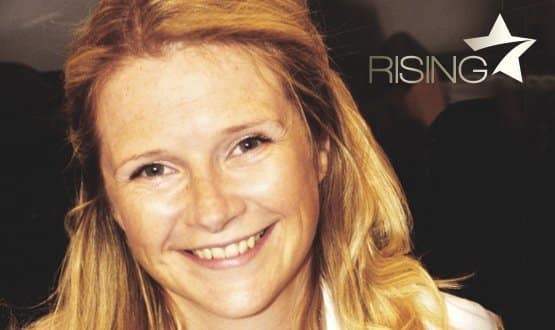Paying her way through a psychology degree, Samantha Robinson found herself working part-time on an IT help desk.
After university, she spent 18 months backpacking around the world; still intent on becoming a psychologist at the end of her travels. But when she returned to the UK, she found herself back in IT.
“I wanted to be an occupational psychologist, but when I got back from travelling the best paid work was the IT help desk,” she says.
Still, it turned out that Robinson is “quite good” at IT and, after a few years in the private sector, she found herself working as a regional head of service management for Connecting for Health during the NPfIT years.
She went on to become a telehealth programme manager at the Yorkshire and the Humber telehealth hub; which the 2020Health think-tank holds up as an example of how to achieve the kind of cost benefits that many projects promise but fail to deliver.
Robinson loved her job, but after having her first child, felt she needed a change. “When I had my little girl, I wanted to work part time.
“When the opportunity for Leeds came around, it was too good to resist,” she says. “It’s very exciting being thrown into such a challenging environment with a massive, five year IT strategy to deliver.”
Up in the attic
Robinson talks to EHI while “hiding in the attic” so her two children can’t interrupt. Her in-laws are looking after them during the summer holidays.
She clearly loves her present job as informatics programme manager and speaks with huge enthusiasm about informatics. Unfortunately, her friends’ eyes usually glaze over when she tries to convey the excitement of her IT projects.
“I enjoy it and I’m passionate about it. My friends think I sit in a dark room and do programming, which is not the reality at all,” she says.
Unsurprisingly, she also rejects the idea that IT is a distinctively male ‘thing’. “Skills such as multitasking are important. It’s such a rounded role; there are quite a few female traits that are useful,” she argues.
Having said which, she admits: “I’m quite disheartened when I go to forums and conferences and it’s quite male driven with hardly any women around.” Leeds, she adds, is different and the informatics department is “very female heavy.”
Although she technically works part-time, the reality is very different. There are long hours, albeit flexible ones. Robinson says this keeps her on her toes and she gets a lot of support from her senior management.
“We went live with the dental picture archiving and communications system last week and we’re working on a maternity project,” she says.
“We’re responsible for rolling out a new infrastructure, and wi-fi, which we completed recently. It’s extremely challenging but a lot of fun,” she says, seemingly unfazed by the long list of business critical projects she is reeling off.
Passionate about maternITy
One of the projects Robinson is most excited about is the maternity system. “I’ve been through [birth] twice in the past four years and each time I had to carry around this ridiculous book, so that if I was to go into labour in Sainsbury’s I could be whisked away with my notes,” she says.
“I feel that there’s so much that can be done to streamline the process.”
Leeds has a budget of £37m to drive its ambitious informatics strategy, but its deputy director of informatics, Eileen Jessop, told EHI earlier this year that the trust was running out of the money that would be needed to realise all of its plans.
Robinson agrees that the financial challenge is huge. The trust has just approved a business case for e-prescribing, and she wants to begin the project as soon as money allows.
Leeds has applied to the £260m ‘Safer Hospitals, Safer Wards: Technology Fund’ announced by health secretary Jeremy Hunt in May and now administered by NHS England.
It hopes to secure extra funding from the fund for the e-prescribing project, and Robinson is hopeful that if it is successful this will speed up the roll-out.
“We have committed funding to do e-prescribing, but if we can get that matched by NHS England, we can roll it out much quicker,” she says.
Love a challenge
Leeds, which has developed its own open source portal to underpin its electronic patient record strategy, has got a wide clinical engagement, which Robinson says is key to making its huge stack of projects run to plan.
“We are very much clinically driven in terms of having a chief clinical information officer. We also just appointed a nursing informatics lead. When it comes to the work force they need to be represented at every level,” she says.
“They are absolutely critical in terms of what we’re doing. Getting nursing engagement is very important. When she shows up in her nursing uniform people respond better.”
Robinson has been at Leeds for eight months, and clearly loves every minute of it. The trust’s five year IT programme is one of the biggest challenges she has faced in her career, and one that she looks forward to ticking off on her to-do list; although she acknowledges the job will never be done.
“There are always upgrades to be done and projects to work on in the NHS,” she says. The best part of it, she adds, is watching change happen and knowing it is improving patient care.

Are you a “rising star” of NHS IT? Or do you know somebody who is? EHI is looking to talk to people who are at a relatively early stage in their careers who are set to shape the healthcare IT and information world of the future.
If you know somebody who should be profiled, who is happy to talk about their working lives, their favourite projects and ambitions, please contact EHI reporter Lis Evenstad.

